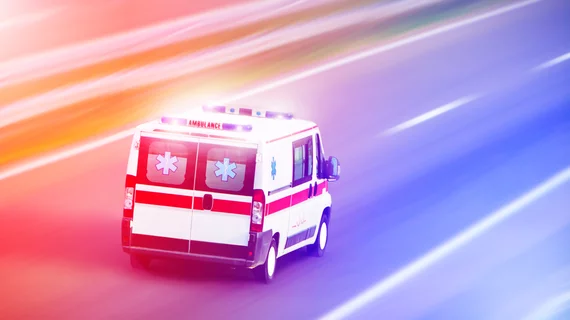Doctors pilot mobile stroke unit equipped with low-cost MRI machine
Many health systems now deploy mobile stroke units equipped with CT scanners, but a team of doctors believes they are the first to outfit an ambulance with an MRI machine.
The idea originated when Donna Roberts, MD, a neuroradiologist at the Medical University of South Carolina, wondered if a new portable MRI modality from Hyperfine could help patients in rural parts of the state. Roberts reached out to MUSC experts in telemedicine, stroke and the local fire department to test it out.
Early practical tests showed the machine worked surprisingly well on the move. It sensed motion and corrected itself in real time, producing clear scans while traversing bumps in the road.
“We think we're the first—but we know we’re the first to ever do an MRI scan on the Cooper River Bridge,” Michael Haschker, manager of telehealth technologies at MUSC Health Center for Telehealth, said in a university news piece.
Mobile stroke units equipped with CT scanners and technicians improve patient outcomes and reduce time to treatment, but they can also cost up to $1 million per unit. Reimbursement issues have also prevented widespread uptake.
MUSC experts say portable MRI is a fraction of the cost, doesn’t require radiation and can more accurately diagnose stroke. The latter would help docs quickly assess if a patient should be triaged to a community hospital or specialized stroke center.
The team plans to write up a report detailing their findings and hopes to pilot a program in Charleston County to gauge its feasibility and costs.
Read the full story below.

